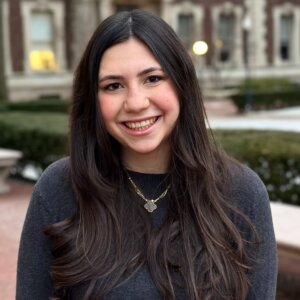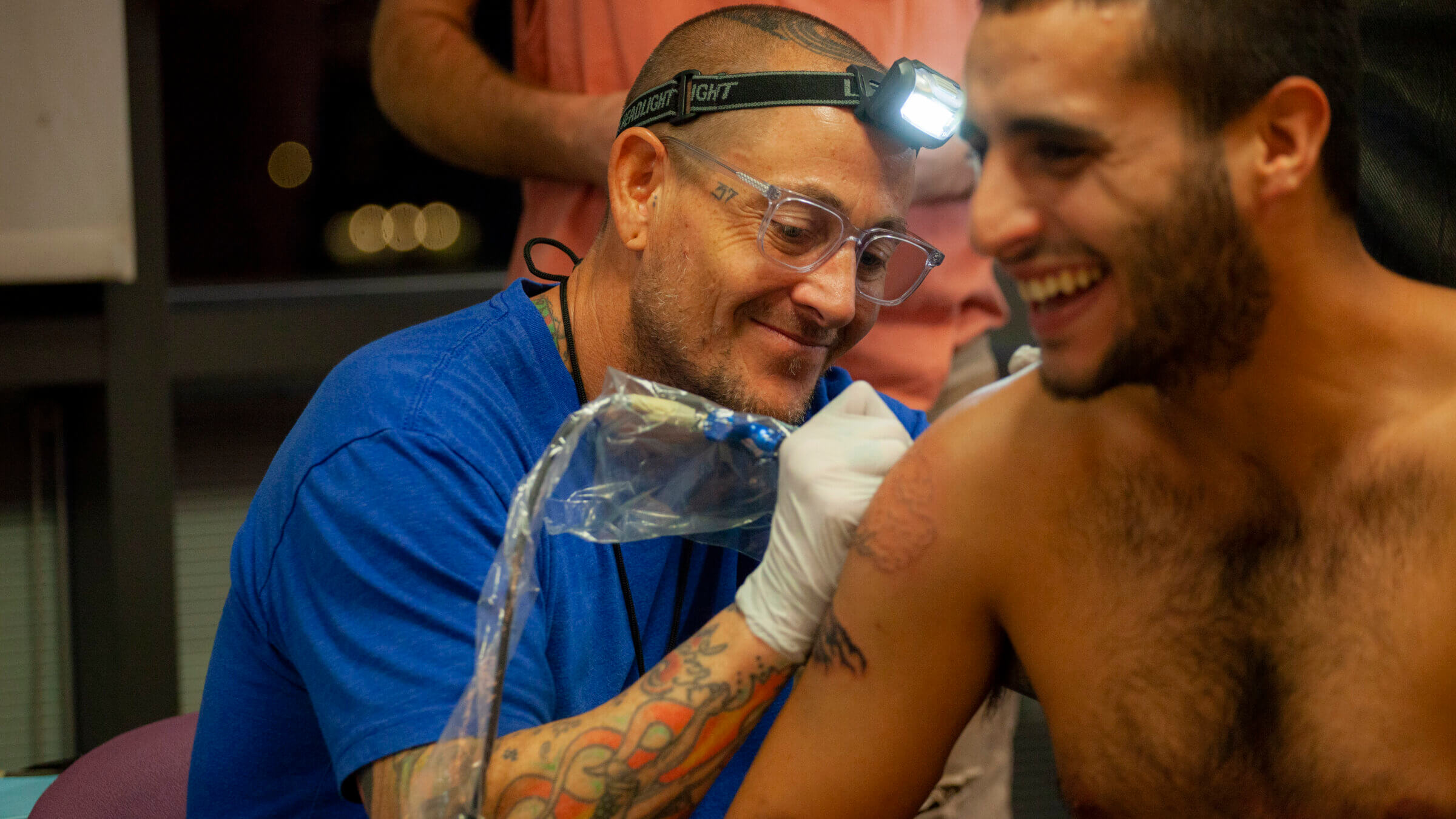
Photo Essay‘The most important tattoo I ever did’: Artists volunteer to ink Oct. 7 survivors
A project called “HEALING INK” brings together tattooists from Israel and abroad
An artist who volunteers with HEALING INK, a project that gives free tattoos to victims of violence. Courtesy of HEALING INK
Photo Essay‘The most important tattoo I ever did’: Artists volunteer to ink Oct. 7 survivors
A project called “HEALING INK” brings together tattooists from Israel and abroad
The artists who gathered in Tel Aviv Thursday to offer free tattoos to survivors of Oct. 7 know their work is rooted in trauma. They want it to be a source of strength.
Twenty tattooists — half from Israel, half from abroad — are volunteering with HEALING INK, a project of a nonprofit that enlists artists to counter anti-Israel sentiment. The group plans a second session in Jerusalem on Sunday, and expects about 100 people total — including the survivors of the Nova Music Festival, the attacks on kibbutzim and relatives of hostages taken that day — to get tattoos of their own design.
“These tattoos say, ‘This is my body. This is my life. And I will not let anyone — even a terrorist — rob me of that,'” said Craig Dershowitz, HEALING INK’s director.
Founded in Israel in 2016, HEALING INK has expanded to serve victims outside the country. In the U.S it has worked with the victims of mass shootings, including the 2017 massacre at the Harvest Music Festival in Las Vegas.
1 / 3
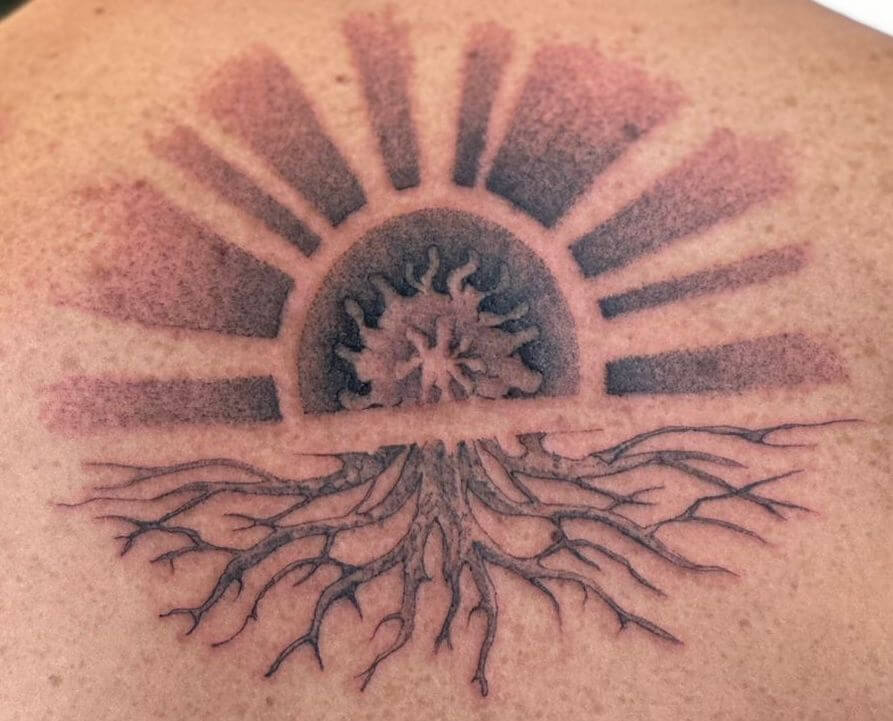
After hiding in trees to escape the Nova Festival, one survivor chose to symbolize those trees. (Curtesy of Ilay Ben Shimon) Image by
Ilay Ben Shimon, a tattoo artist from Haifa, said he took part in the Tel Aviv event because he wanted to “give someone a scar that he chooses to wear, because most of these guys have scars that they didn’t choose to get.”
He tattooed a survivor of the Nova festival who ran for two hours from Hamas militants and hid among pepper trees. With Ben Shimon’s help, he designed a sun coming out of a tree’s roots for his tattoo.
Ben Shimon, who joined the IDF reserves on Oct. 7 in response to the massacre, said that since returning from war he has found that his work is more in demand than ever. Though most of the tattoos he inks are in his signature anime style, and not explicitly about the war, he said he takes pride in bringing some joy back into Israelis’ lives.
2 / 3
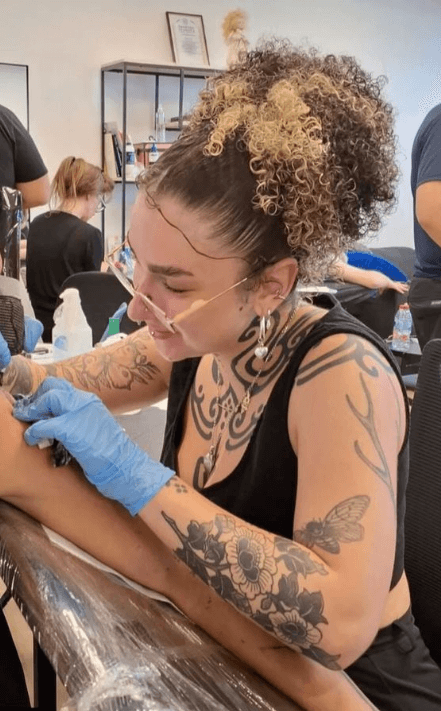
Shani Genish tattooed an Oct. 7 survivor with a symbol of life, she said. (Courtesy of: Shani Genish/Instagram Screenshot) Image by
Shani Genish, a tattoo artist from Tel Aviv who goes by “Vespera,” said she volunteered because her brother survived the Nova festival, and because she believes tattoos can heal. “If I have the power to help with my art,” she said. “I have to do it.”
Genish gave a survivor of the festival his first tattoo: an abstract brush stroke from his ring finger to his shoulder to symbolize a vein that runs from one’s finger to their heart which, she said, “symbolizes love and life.” She’s trying to decide on a tattoo with a positive message for herself, she said, in response to the war.
3 / 3
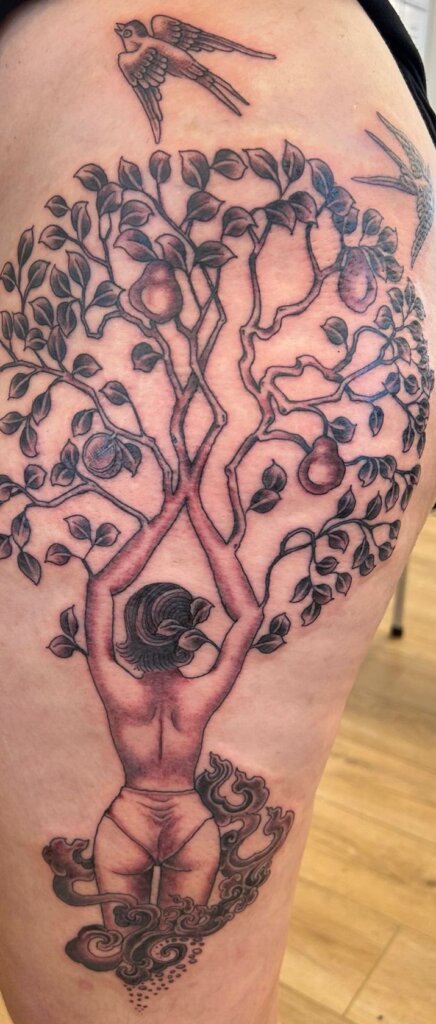
One survivor wanted to depict the birds and fruits she remembered while hiding from Hamas on Oct. 7. (Curtesy of Yoni Zilber) Image by
Yoni Zilber, a Jewish New York-based tattoo artist, headed to HEALING INK with five non-Jewish, non-Israeli tattoo artists — friends, he explained, who could look beyond the anti-Israel sentiment they were seeing online and wanted to help.
On Thursday Zilber tattooed a Nova Festival survivor who dodged bullets on Oct. 7, running with her boyfriend past dead bodies. After two hours, the couple hid together under an orange tree, able to see little more than the birds perched above them. Her tattoo captures their view that day. Soon after she left for reserve duty in Gaza.
“She told me this was the only light she had since Oct. 7,” Zilber said.
Zilber, who served in the IDF, said he is now too old for reserve duty but was looking for a way to help.“In 30 years of tattooing, that was probably the most important tattoo I ever did,” he said.
